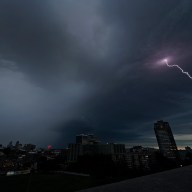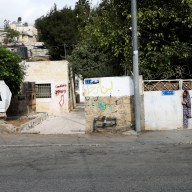TORONTO – A Tamil-Canadian group welcomed Canada’s pledge of humanitarian aid for war-torn Sri Lanka on Tuesday, but also criticized the offer as weak because it lacks strict conditions to ensure the help doesn’t end up in the hands of the South Asian country’s government.
Foreign Affairs Minister Lawrence Cannon said in a statement that Canada and the United States have agreed to work together to support the United Nations in providing assistance to the island nation that has been mired in a civil war since 1983.
Ottawa’s offer of help came hours after the Canadian Tamil Congress issued a list of demands that included asking the Canadian government to send aid to what the congress called “reputable aid organizations” instead of the Sri Lankan government.
The congress’s demand was not directly addressed in Cannon’s statement, though it mentioned the importance of working with the global community to urge the Sri Lankan government to co-operate with aid efforts.
“It’s not a very strong statement,” said Manjula Selvarajah, a spokeswoman for the Canadian Tamil Congress in Toronto.
The group accused the Sri Lankan government of not accounting for millions of dollars in Canadian aid following the massive tsunami in 2004 that killed more than 30,000 people in the country.
“We feel that the Sri Lankan government is going to take the same stance to this, that it will fall on deaf ears, even though it’s coming with the best of intentions from Minister Cannon,” Selvarajah said.
In the statement, Cannon offered the government’s condolences to the people of Sri Lanka and those around the world who have lost loved ones in the conflict.
“This terrible, decades-long war has inflicted untold devastation and heartbreak on Sri Lankans,” Cannon said.
Earlier in the day, the congress called on Prime Minister Stephen Harper to send a strong message to the Sri Lankan government to let aid groups, media and independent monitors into the war zone, where Tamils say thousands of civilians are without food and medicine.
The congress also said Canada should add its voice to calls by the European Union for a commission of inquiry to investigate alleged war crimes in the conflict.
“The militaristic fight has come to a halt, so the door is open now for the political struggle,” said congress spokesman David Poopalaipillai.
Tamil-Canadians have repeatedly demanded that the Sri Lankan government allow observers into the war zone to verify reports of casualties, including the death of the leader of the rebel Tamil Tigers, Velupillai Prabhakaran.
The rebels are considered a terrorist group by Canada and several other countries.
When Sri Lankan state television announced that Prabhakaran had been killed, the claim was rejected by many Tamil-Canadian protesters.
“We don’t have any confidence with the (Sri Lankan) government,” said Durga Pathman, 29, who was among dozens of protesters gathered across the street from the U.S. Consulate in Toronto, which is home to one of the largest Tamil populations outside Sri Lanka.
On Tuesday, Sri Lankan President Mahinda Rajapaksa declared his country “liberated from separatist terror” as state television broadcast images of Prabhakaran’s body after it was recovered.
Prabhakaran’s body was later identified by Vinayagamoorthi Muralitharan, a former rebel commander known as Col. Karuna, who defected from the group and is now a government minister, the government said in a statement.
A rebel official overseas, Selvarasa Pathmanathan, denied Prabhakaran had been killed.
“Our beloved leader Velupillai Prabhakaran is alive and safe,” he said in a statement posted Tuesday on the rebel-affiliated TamilNet website. “He will continue to lead the quest for dignity and freedom for the Tamil people.”
He offered no further details or evidence to support the claim.
Prabhakaran turned what was little more than a street gang in the late 1970s into one of the world’s most feared insurgencies. At the height of his power, Prabhakaran controlled a virtual country in the north and a rebel army of thousands backed by artillery, a navy and a nascent air force.
He was also branded a terrorist abroad and his fighters waged hundreds of suicide attacks, including the 1991 assassination of former Indian prime minister Rajiv Gandhi, and forcibly recruited child soldiers.
The war has killed more than 70,000 people over the past quarter-century.













